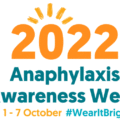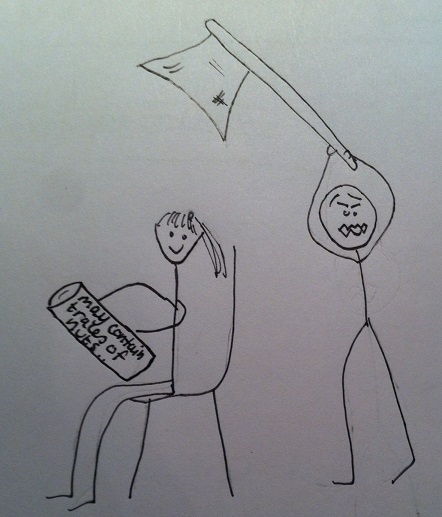The number of hospital admissions for life-threatening allergic reactions has more than doubled in the last 20 years, according to research figures from the NHS and MHRA published in the Guardian.
Medicines and Healthcare products Regulatory Agency (MHRA) say that in 2022/23 there have been 25,721 admissions to England’s hospitals for allergies and anaphylaxis, which is more than double the 12,361 two decades before.
You can read, ‘Hospital admissions for life-threatening allergic reactions ‘more than double’ here.
How many anaphylaxis admissions are due to food allergies?
As someone with a food allergy, these are the figures I’m most interested in. Apparently, ‘For food-related anaphylaxis and other adverse reactions, the figures jumped from 1,971 admissions in 2002/03 to 5,013 last year.’ This is way more than double and very worrying.
Why have hospital admissions for anaphylaxis doubled?
There could be many reasons for this rise, but what it’s important to understand, is that despite this increase in admissions, the number of fatalities has gone down. In an article from 2021, it was found that Deaths from food allergy rare and decreasing in the UK.
A doubling of numbers is a staggering statistic though. So why might that be? There could be many reasons:
- Population increase – The article puts this down to a growing population but it seems higher than that to me.
- Increase in allergies – Allergies are rising each year so it makes sense for there to be more serious reactions
- Less choice – Eating out got much harder during and after covid, restaurants are struggling and offering free from is one thing I thing has suffered. I’ve certainly noticed far less choice with many places choosing just to not offer anything suitable.
- Lack of understanding – Awareness of serious allergies is not rising along with the disease rise so we STILL have many many staff not getting sufficient training in allergen safety. It’s hard to know without detailed statistics tho, what the incident was that caused the hospital admission… ie. Was it at home, school, work or while eating out?
- Lack of allergy services – It’s not easy to get a proper diagnosis with a specialist so a lot of people don’t know how serious their allergy is until they eat the allergen again, reactions can get worse over time or be exacerbated by external things such as stress, alcohol, menstruation etc. This can mean people don’t know they are at risk and their first serious reaction is what results in their diagnosis.
- Poor training in food service – I’ve had a few near misses recently, where I’ve been given the wrong milk in cafes. In another pub, my oat milk came in the same jug as the normal milk and someone, without realising, used my oat milk and put it down elsewhere, meaning I ALMOST used the wrong milk. I did my test of putting a drop on my hand before pouring and had to ask for a fresh jug. The then brought it in a totally different jug. A learning experience for us all that day.
- Vegan food is not safe – he rise in veganism could also be a contributing factor. Being vegan doesn’t necessarily mean it’s dairy, egg or fish free. The regulations governing vegan labelling isn’t as strict and this food can and does often contain traces.
- Better record keeping – Records kept at hospitals are improving, for instance the admission could be recorded as asthma or other things and may not have always been recorded as anaphylaxis. Same with deaths – often a death from asthma or heart attack may have begun with anaphylaxis. It’s quite complex, particulary for those having their first ever allergic reaction as they won’t know what’s causing the issue.
- People not carrying Adrenaline – I see this so much, people with allergies don’t always carry two injectors with them. This is terrifying, and we MUST educate ourselves and our friends and family on the importance of this.
Who records deaths from anaphylaxis?
My good friend Hazel Gowland was keeping this record on behalf of the Anaphylaxis Campaign. Hospitals must also record these deaths, but the it’s interesting to learn from what went wrong in each case so we can all hope to avoid it happening again. You can now report deaths and find out more about the UK Anaphylaxis Death registry. The BSACI holds the UKs Registry of Anaphylaxis Deaths.
How to respond to anaphlaxis
Do you know what to do in the event of anaphylactic attack? The advice has recently changed. Make sure you know how to potentially save a life:
- Call 999 and say ANAPHYLAXIS – (ANA-FA-LAX-SIS)
- Admister adrenaline in outer mid thigh
- Use second pen if no improvement in five minutes
- Do NOT move, do NOT walk, stay seated or laying down with feet raised
- Stay calm and try not to panic
The advice is to always carry two adrenaline autoinjectors with you at all times, this can be the difference between life and death. Make sure you have in date pens, carry them with you and also have trainer pens to practise with.
What do you think about this rise in allergy admissions?
I’d love to hear your thoughts. Why are the on the rise and what can we do about it? Should we be worried? or his this just the normal progression of population rise and better diagnosis and reporting to A&E when it happens.












Hello Ruth,
Thankyou for another informative blog.
I also have your anaphylaxis book – which is great!
I am sure just a symptom of predicted text, but feel I should flag up incase anyone is unfamiliar with what to do in the event of anaphylaxis…….
In your section above titled “how to respond to anaphylaxis” it tells us about new guidance, unfortunately it says we should now move or walk around. I know the following bit tells us we should be staying seated or laying down, but it’s just a bit confusing if you arent familiar with what to do.
And in answer to your question, I think the rise in numbers is really scary. What is even more scary is when you are out for dinner and some establishments just seem to not get how serious it is. Perhaps allergy awareness needs to make up a larger part of the food hygiene course, which i assume all employees in food establishments should do. Not sure if it’s a legal requirement though. However, an awful lot of restaurants are extremely helpful and its always great when some bend over backwards to try and help.
Kind regards
Jo
Oh god that’s my worst typing mistake – now instead of not! Definitely very unhelpful. I will edit forthwith. Thanks for letting me know and also thanks so much for your lovely comment. I’m glad you found my book helpful. Eating out is still the hardest thing to do for sure, but so many places do make such an effort. Stay safe!
It’s concerning to see that hospital admissions due to life-threatening allergic reactions are on the rise. This highlights the importance of accessible and quality healthcare for everyone. Having a medical insurance plan isn’t just a guarantee for prompt treatment, but also provides financial support in unforeseen situations like these. It’s a reminder of how prioritizing our health should be paramount.
Very True, I recently got holiday insurance through Stay Sure which covers me for anaphylaxis. Wasn’t too expensive either as it’s been a long time now since my last bad reaction and hospital admission.